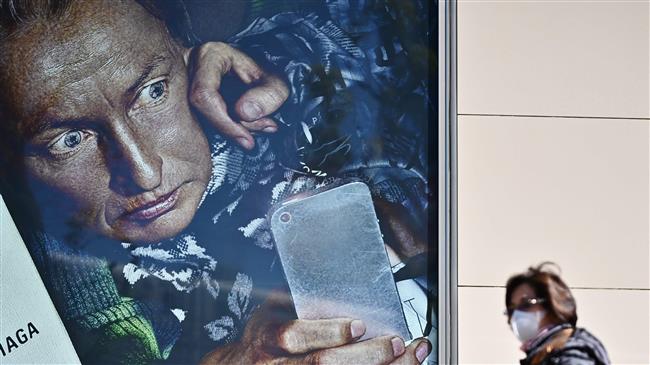Coronavirus outbreak aggravating stress, anxiety: Experts
The coronavirus epidemic is causing elevated stress and anxiety, exacerbating preexisting mental health problems, such as OCD, mental health practitioners and campaigners have revealed.
Reactions to the crisis can include feeling overwhelmed, fearful, sad, angry, and helpless, according to experts. Some people may suffer insomnia or have problems concentrating. Fear of contact with others, travelling on public transport, and going into public spaces may increase, and some people will have physical symptoms, such as an increased heart rate or upset stomach.
The World Health Organization (WHO) maintains that the crisis is generating stress, and has advised people to steer clear of watching, reading, or listening to news that causes feelings of anxiety or distress.
Stephen Buckley, of the mental health charity Mind, said, “We know that the coronavirus and its impact are causing stress and worry for many people. If you already have a mental health problem, it’s possible that the worries of coronavirus may be affecting how you’re coping.”
Quarantine or self-isolation may adversely affect mental wellbeing, as well.
A review of the psychological impact of quarantine published in The Lancet in February said, “Separation from loved ones, the loss of freedom, uncertainty over disease status, and boredom can, on occasion, create dramatic effects. Suicide has been reported, substantial anger generated, and lawsuits brought following the imposition of quarantine in previous outbreaks.”
“The potential benefits of mandatory mass quarantine need to be weighed carefully against the possible psychological costs.”

Katherine Kinmond, a psychotherapist in Staffordshire and a member of the British Association for Counselling and Psychotherapy, points to uncertainty as a key driver of anxiety. “Coronavirus gives rise to lots of uncertainty, and this has particular resonance with people who suffer from anxiety.” Clients were “inevitably” raising concerns about the coronavirus in therapy sessions, she said.
Ashley Fulwood, of OCD UK, said the charity had seen a steep rise in calls and emails from people with obsessive compulsive disorder who were developing a new fixation on the coronavirus.
Around a quarter of people with OCD experience compulsive cleaning, such as hand washing over a fear of contamination, according to Fulwood.
“I’m seeing for some of those people their OCD is intensifying, there is lots of avoidance going on and lots more washing than is recommended by the government — for some people their OCD is being triggered to the point where they’re washing for 20 minutes or longer,” he said.
Emily Burke, an 18-year-old student in Hertfordshire, has had OCD for four years and said she was having difficulty dealing with the extensive media coverage and deluge of social media posts.
“I’ve worked hard on it and I don’t wash my hands as much as I used to, so it’s really triggering. It’s not even like I can just turn off social media because it’s everywhere, everyone is saying: ‘Have you washed your hands?’” she said.
Panic attacks may also be a response to the coronavirus outbreak, according to David Crepaz-Keay, of the Mental Health Foundation.
“One of the things that leads to panic attacks is excessive worrying for unsubstantiated reasons,” he said. “There are a relatively small number of people in this country affected by coronavirus… We shouldn’t allow that anxiety to cause us more problems than it warrants at the moment.”
Rosie Weatherly, of Mind, said mental health services were making plans to provide continued treatment in the case of restrictions on movement and the closure of workplaces.
“A lot of people are reliant on interaction with therapists, but some of that can be done by phone or online. People with mental health issues need to ensure their medication supplies are sufficient for any periods of self-isolation,” she said.
Mind’s advice to people who have behavioral problems about hygiene includes avoiding repeatedly reading the same advice, asking other people not to keep reminding them to wash their hands, setting time limits on hand washing, and using breathing exercises.
Israeli general admits failure, heavy losses in genocidal war on Gaza
VIDEO | London's Muslim Shopping Festival kicks off
VIDEO | Killings continue in Gaza as aid restrictions, arrests draw intl. criticism
VIDEO | Defending sovereignty: Iraq's annual conference celebrates anti-terror icons
Mossad-linked terrorist ringleader trained for ‘urban warfare’ neutralized by Iranian intel. forces
Mediterranean dockworkers stage coordinated strike in solidarity with Gaza
US intel. chief blocked report on ‘call between foreign agent and Trump associate': Whistleblower
VIDEO | Al-Zahra: Once vibrant Gaza City reduced to ruins in Israeli bombing and selling










 This makes it easy to access the Press TV website
This makes it easy to access the Press TV website